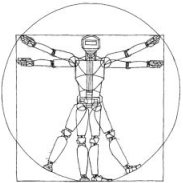Robotics: Science and Systems XIII
Learning Constrained Generalizable Policies by Demonstration
Leopoldo Armesto, Vladimir Ivan, Joao Moura, Antonio Sala, Sethu VijayakumarAbstract:
Many practical tasks in robotic systems, such as cleaning windows, writing or grasping, are inherently constrained. Learning policies subject to constraints is a challenging problem. We propose a \emph{locally weighted constrained projection learning} method (LWCPL) that first estimates the constraint and then exploits this estimate across multiple observations of the constrained motion to learn an unconstrained policy. The generalization is achieved by projecting the unconstrained policy onto a new, previously unseen, constraint. We do not require any prior knowledge about the task or the policy, so we can use generic regressors to model the task and the policy. However, any prior beliefs about the structure of the motion can be expressed by choosing task-specific regressors. In particular, we can use robot kinematics and motion priors to improve the accuracy. Our evaluation results show that LWCPL outperform the state of the art method in accuracy of learning the constraints as well as the unconstrained policy, even in noisy conditions. We have validated our method by learning a wiping task from human demonstration on flat surfaces and reproducing it on an unknown curved surface using a force/torque based controller to achieve tool alignment. We show that, despite of the differences between the training and validation scenarios, we learn a policy that still provides the desired wiping motion.
Bibtex:
@INPROCEEDINGS{Armesto-RSS-17,
AUTHOR = {Leopoldo Armesto AND Vladimir Ivan AND Joao Moura AND Antonio Sala AND Sethu Vijayakumar},
TITLE = {Learning Constrained Generalizable Policies by Demonstration},
BOOKTITLE = {Proceedings of Robotics: Science and Systems},
YEAR = {2017},
ADDRESS = {Cambridge, Massachusetts},
MONTH = {July},
DOI = {10.15607/RSS.2017.XIII.036}
}
